My Dog Bit Me and Drew Blood (What to Do)
You love your dog, and they might show their love back by giving you play nips, treating you as part of the pack. Alternatively, they might get carried away with their playfulness, react suddenly out of fear, or be under another circumstance that causes them to bite too hard and draw blood.
As a proud dog owner, I understand the emotional toll involved when dogs bite their owners. But before you work on overcoming that, it’s vital to address your most pressing concern right now — my dog bit me and drew blood; what should I do?
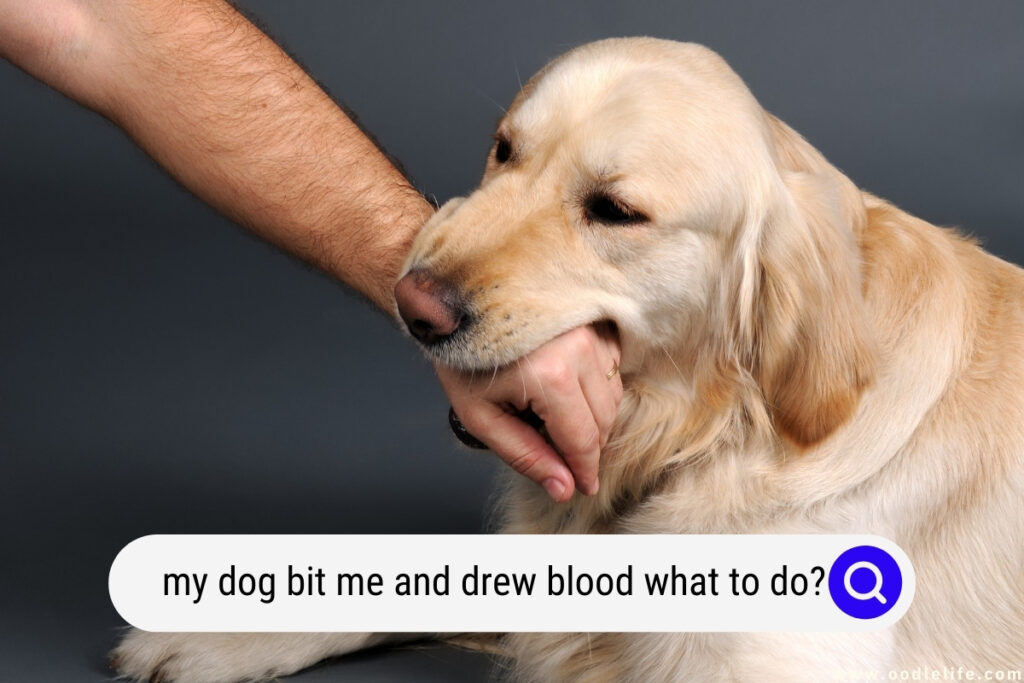
First Things First: Assess the Wound
Not all dog bites are the same. And hopefully, your dog bit you and drew blood by accident or out of fear, not because they intentionally wanted to be malicious.
To determine whether you need medical attention, ask yourself the following:
- Is your wound bleeding profusely, or are there just some droplets of blood?
- Where is the wound’s location? A nip on the arm is likely harmless, whereas a bite on the face may need medical intervention.
- Do you see any bone through the wound?
- Do you feel you broke any bones or harmed yourself in another way in the process of getting away from your biting dog?

Next Step: Assessing Your Dog’s Vaccinations
If there’s a silver lining in your situation, it’s that you have control over knowing your dog’s vaccination status compared to if a dog bit you on the street.
Therefore, think back or check the records of your dog’s latest vaccinations. Tetanus is the vaccine you’ll want to zero in on, as it has a five to ten-day incubation period in dogs and can transmit to humans through a bite.
You’ll also want to check that they have their rabies vaccine. If they’re not up-to-date on rabies, which needs renewing every one to three years, you should make a beeline to your doctor to get a rabies vaccination yourself.
Although tetanus and rabies are the primary initial vaccinations to concern yourself with if your dog bites you and draws blood, dogs without other vaccinations have a higher chance of introducing an array of potentially life-threatening bacteria into the wound.
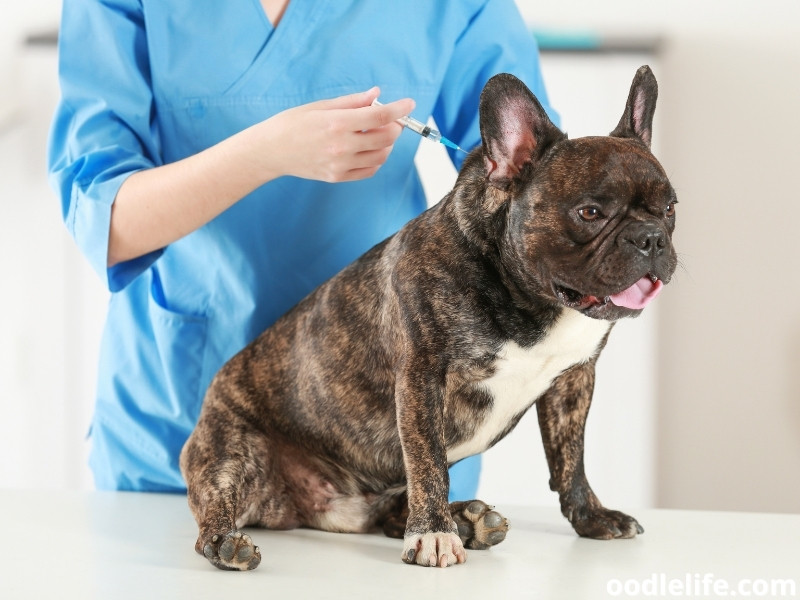
Caring for Your Wound
“My dog bit me and drew blood” is never a term someone wants to search for. But hopefully, your wound is minor. So, should you decide that you don’t need medical attention, below are the steps I recommend for treating your dog bite wound at home.
- Let warm water run over the wound for 5 – 10 minutes, gently washing it with a mild soap.
- If blood is still flowing, use a clean towel or cloth and apply gentle pressure to stop it.
- Cover the wound with antibiotic cream.
- Depending on the size of the wound, use a bandaid or sterile bandage to keep the wound covered.
Since moisture speeds up a wound’s recovery time, you should aim to keep minor wounds covered for one to five days, depending on their healing progress.
You’ll know your dog bite wound is on the mend when you start seeing new skin form over the collagen tissue formed by red blood cells. At this time, you’ll notice your wound beginning to crinkle as the edges move in and a scab begins to form.
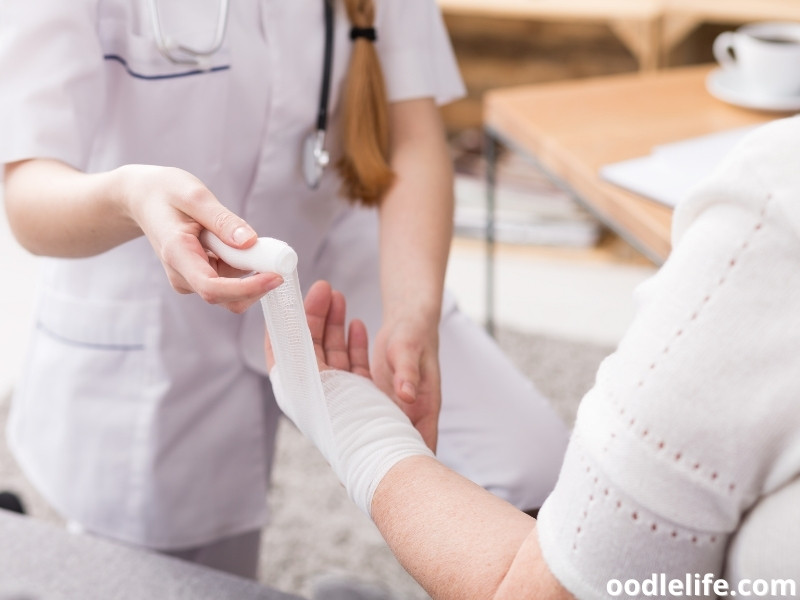
Signs That Your Wound Isn’t Healing
In an ideal world, you’ll be able to self-treat your wound and identify a clear and harmless reason your dog bit you. But if you notice that your wound is producing any of the following signs, it’s time to go to the doctor.
- Bad odor
- Increased redness
- Continual swelling
- Puss and discharge
- Heat coming from the wound
Often, these symptoms aren’t from the bite itself, assuming the wound is small, but because bacteria from the bite is growing within the wound, causing an infection.
The symptoms above are serious, so you shouldn’t delay seeing a doctor if you experience them.
Puppy vs. Adult Dog Bites
If you own a puppy, getting bit is practically inevitable, and it may or may not draw blood. Unlike adult dogs, puppy teeth are much sharper, increasing the chances of their bite making you bleed.
That’s because puppies haven’t had the time to develop strong jaws. Therefore, they make up for it by growing sharp teeth that can cut through meat once they start eating solid food.
Most puppies don’t typically receive their full set of vaccinations until four months old. During this time, they shouldn’t go outside at the risk of contracting diseases like parvovirus.
So, as long as you know that the mother dog and any other dogs in your home that the puppy comes in contact with are vaccinated, you shouldn’t have to worry about a puppy transmitting tetanus or rabies through your wound.

Managing Your Biting Dog
Now that your wound is hopefully clean and the bleeding has subsided, it’s time to assess your dog’s motive for the bite. Relatively less troubling reasons that dogs bite are because:
- They’re puppies and chew for dental reasons and need to undergo standard training.
- You spooked them, and they bit out of fear before retreating, realizing it was you who they bit.
- You approached too close to a mother and her young, and the mother reacted out of instinct.
- Your dog was in a fight with another dog, and you got in the middle of it.
- Your dog is experiencing pain, and you touched a painful part of their body.
In most cases, if your adult dog immediately retreats after biting you and appears remorseful (cowering or putting their tail between their legs), they likely recognize that what they did was wrong.
Furthermore, if you recognize the bite came from a natural instinct, like puppy chewing and a protective mother over her puppies, it’s safe to assume that your otherwise good-natured dog will grow out of their temporarily biting ways.
Sadly for dog owners, some dogs have an aggressive streak, potentially making them a threat to you and those you encounter.
That said, it’s unhelpful to blame aggressive dogs for their behavior. Instead, repeated, aggressive bites from your dog could be due to:
- An abusive history where triggers cause them to feel like they have to defend themselves via biting.
- Food guarding, if your dog has to compete for food with other dogs.
- Possessive biting if your dog doesn’t like you coming close to a particular toy.
- Dogs trained for fighting.
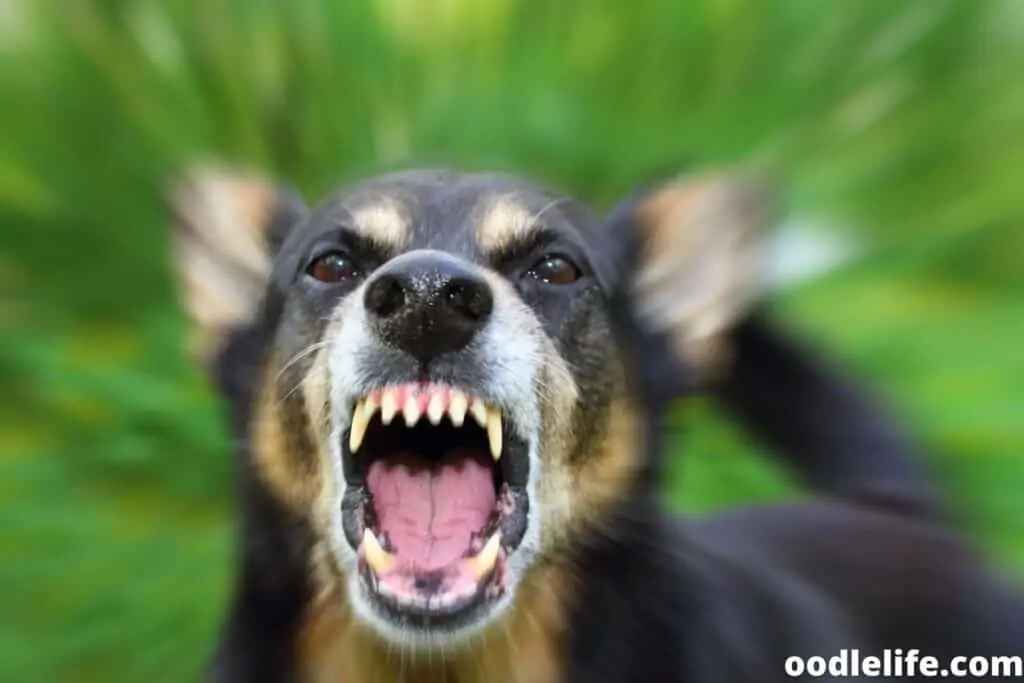
Do I Need To Give Up My Biting Dog?
Contemplating giving up your dog because they bit you is heartbreaking for dog owners. There’s no perfect answer here, as each dog bite situation is unique.
Some questions to consider include:
- Is your dog a puppy or an adult?
- Was this a first-time incident, or has it happened before?
- What appears to be the biting instigator? (See the serious versus less severe biting bullets in the section above).
- Do you have young children or frequent visitors that you’re worried about your dog biting?
- Does your dog appear to be biting maliciously, instinctually, or in self-defense?
I encourage you to speak with a professional dog trainer or your veterinarian if you’re thinking about giving up your dog because they bit you. That way, they can do a behavioral and medical analysis to give you their opinion on if there are remedies for helping your dog to stop biting.
According to the American Society for the Prevention of Cruelty to Animals, around 6.3 million animals enter the animal shelter system every year, 920,000 of which they euthanize.
While it’s true that more drastic measures sometimes need to be taken for biting dogs, particularly those with cognitive illnesses, going above and beyond with the help of experts to help your dog overcome their biting behavior should be your first approach.
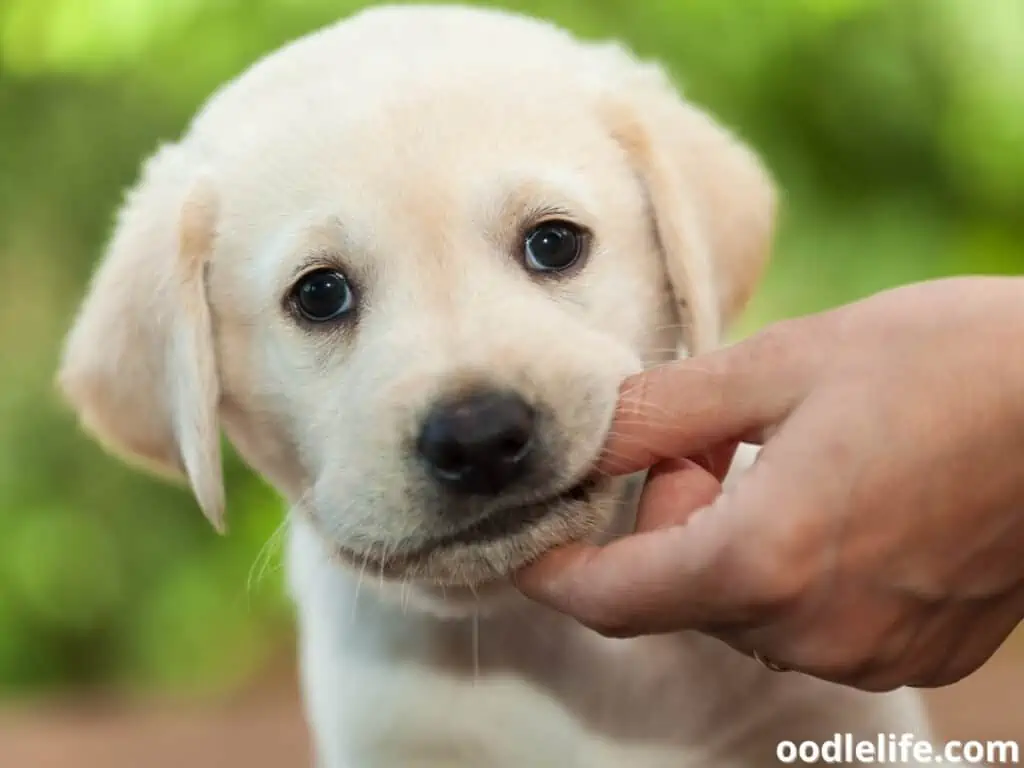
Tips for Teaching a Dog Not To Bite
Assuming that your dog didn’t aggressively bite you, below are some tips you can use to teach them that your arm isn’t a toy.
- Stop playtime early if they get too rowdy and start biting you or other dogs obsessively.
- Distract your dog with alternative items to bite, such as a toy (this is especially applicable for puppies).
- Use positive reinforcement techniques to reward behavior when your dog isn’t biting.
- Let out a loud-pitched “ouch!” if your dog or puppy bites you.
The last point on this list is a technique called bite inhibition. As puppies grow, they learn how hard they can play-bite with their littermates based on whether the other puppies yelp. Therefore, they’ll instinctively recognize that they’re biting too hard if you yelp when they bite you.
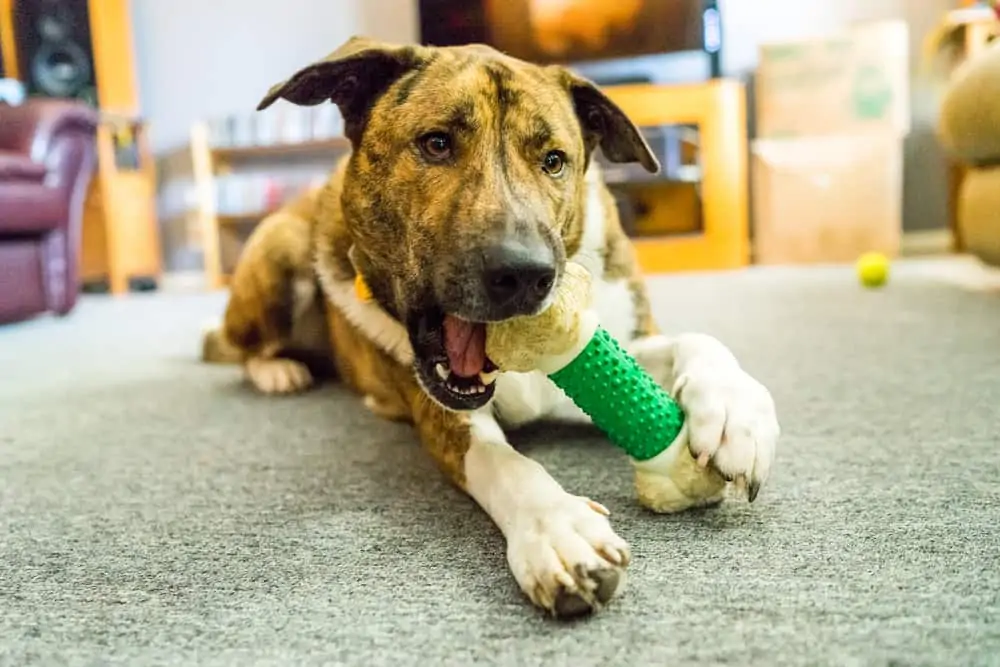
The Bottom Line
If you’re thinking, “My dog bit me and drew blood, now what do I do?” you hopefully have a better grasp of the steps to take to care for your wound and assess your dog’s biting motive.
Proper training, especially from a young age, reduces the risk of your dog biting you. However, since training methods aren’t always intuitive, I encourage you to enlist a dog trainer to support you with teaching your dog not to bite if you find yourself needing help.